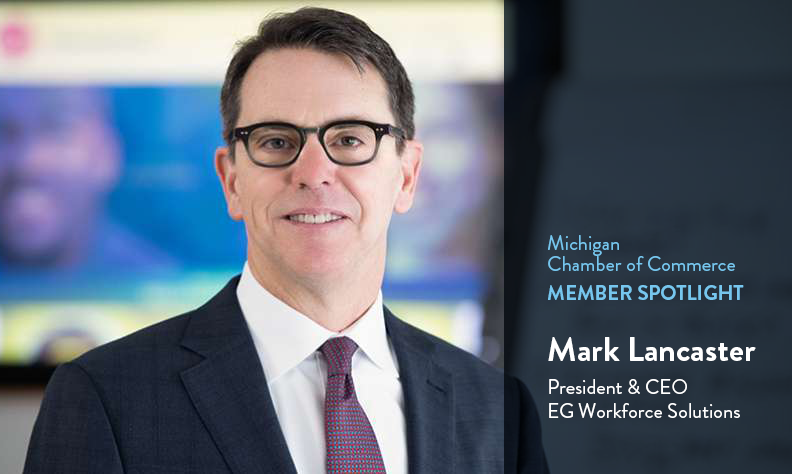The emails, phone calls, and meeting requests just won’t stop flooding in and you’re feeling a bit exhausted. A vacation sounds pretty good right about now, doesn’t it? But, there’s one thing holding you back: fear of actually stepping back and taking that time off.
If this sounds like you, you’re not alone. Over half of American employees—52%, in fact—didn’t use their allotted time off during the 2017 calendar year. While studies show that this percentage is decreasing year-over-year, America still has a lot of catching up to do. In Europe, for example, employers are legally required to grant over 30 vacation days to employees. Those statistics start to feel a bit more chilling when you realize that women are impacted most negatively by the expectation to be “always-on” as they attempt to balance career, family, and the household.
The only way to stop the toxicity of burn out culture is to lead by example. By honoring time away from work, companies can then begin to cultivate a happier and more productive workforce.
BUILD HEALTH
Perhaps the most obvious reason you should be taking your time off is for the sake of your own physical and mental health. Without taking appropriate vacation time, the long-term effects of stress can take negative tolls on both your body and brain.
Additionally, empowering your staff (and yourself) to take time off is a sign of a healthy company culture. Building trust and offering support to one another shows that your team has appropriate boundaries around work/life balance, and their absence might just act as a lesson for appreciating a colleague’s contributions.
BUILD WEALTH
Now, we’re not talking wealth in the traditional sense. (Although that applies here, too—if you aren’t taking your allotted time off, you’re effectively giving hundreds of earned dollars back to your employer each year.)
Wealth takes on many forms, one of the most important being happiness. If you’re ignoring your own well-being in order to crank out more work, chances are that you’re on the road to burn out. Detaching yourself allows you to be more resilient and focused inside of work hours, which leads to increased productivity. Not convinced yet? SHRM states that 78% of HR Directors found that team members that took more vacation days reported higher job satisfaction in the long run.
So, what are you waiting for? Book yourself some time away from the office—your productivity will only benefit from it.
To discuss any matter relating to human resources or workplace wellness, contact EG.
A recruiter can be an important advocate for you during the interview process and help you achieve your professional goals. The key, however, lies in building a good rapport.
When the interview comes to a close, don’t give your recruiter the silent treatment. This list of interview questions will help you build your relationship with your recruiter and create a dialogue that benefits both of you.
1. WHAT WAS IT ABOUT MY RESUME THAT PIQUED YOUR INTEREST?
There was obviously something about your resume that made you stand out to the recruiter. Asking this question will help you gauge what skills are the most important markers of success in this role.
2. IS THIS A NEW ROLE, OR IS IT A BACKFILL?
There’s no right or wrong answer to look for here, but asking this interview question will give you a better idea of job expectations and the history of the position. Keep in mind: a new role will likely require the development of a brand new compensation package, so salary negotiations may take a bit longer.
3. HOW LONG HAS THIS ROLE BEEN OPEN?
The length of time a position has been open can be indicative of a couple of different things.
1: If the role has been open for a short amount of time, prepare yourself for additional time during the interview process. Most managers like to meet with a few potential candidates, so this could potentially draw out your timeline.
2: If the role has been open for quite some time, you might have a bigger problem on your hands. A long time-to-fill might be due to a picky hiring manager, undesirable job requirements, or a challenging skill set required for the role. Use the other questions in this list to start digging into the “why” if this is the case.
4. WHAT CAN YOU TELL ME ABOUT THE HIRING MANAGER?
Recruiters have a unique understanding of the objectives and culture of the hiring company. Use this insight to your advantage to better understand the hiring manager’s priorities and personality style. Doing so will help you decide what areas of your skills and experience to highlight if you move on to the next phase of the interview.
5. WHAT’S YOUR RELATIONSHIP LIKE WITH THIS HIRING COMPANY?
The best agency recruiters tend to have deep connections with the companies that they hire on behalf of. Interview questions like this will tell you how knowledgeable the recruiter is about the company, its history, and how open their line of communication is.
6. WHAT CAN YOU TELL ME ABOUT THE COMPANY’S CULTURE?
We all know that culture is king in today’s tight labor market. Ask your recruiter a couple interview questions their impression of the company’s culture so you can begin to decide whether this organization is the right fit for you.
7. WHAT DOES PROFESSIONAL DEVELOPMENT LOOK LIKE AT THIS COMPANY?
If growth is on your mind, be sure to sneak in a question about the opportunity for internal mobility. This question is especially important if you’re looking for a role with longevity.
8. WHAT ARE SOME REASONS OTHER CANDIDATES HAVEN’T BEEN SELECTED?
The initial conversation with your recruiter is the perfect time to get the lowdown on the skills or traits other candidates exhibited that halted them in the process. A hiring manager likely won’t be as apt to answer later on, so use this time to understand what mistakes to avoid.
9. WHAT DOES THE REST OF THE HIRING PROCESS LOOK LIKE?
Try to lean in to your recruiter’s knowledge of the hiring company and how they operate during the interview process. Asking this question upfront demonstrates that you’re eager to move forward in the process. It will also help you understand the timeline and mindset of the hiring company so you can be prepared for what’s to come.
To take a step forward in your career or discuss any other recruitment matter, contact EG. info@eg-us.com
The reasons for not negotiating a higher salary seem insurmountable: “It’s just not the right time.” “I shouldn’t come across as pushy.” “I’m comfortable with where I’m at.”
Are you guilty of telling yourself any of these lies? According to a recent survey conducted by Robert Half, the answer is probably yes. Only 39% of people negotiate a higher salary upon receiving a job offer. Furthermore, women in the workplace are even less likely to negotiate. In a study conducted at Stanford University, only 7% of women attempted to ask for a higher wage.
With the right preparation, you can overcome those negative thoughts circling around your head and set yourself up for a salary that’s truly representative of your value.
DEFINE YOUR NEEDS
Before you begin negotiating, you need to define the salary that will help you achieve your personal financial goals. Consider different factors such as:
- Cost of benefits
- Cost of living
- The employer’s contribution to your retirement savings account
- The distance of your commute
Taking a look at these different factors will give you a more holistic view of what that number means to you.
Most importantly, you should be willing to walk away if the employer isn’t going to meet the parameters you defined. That’s because your current salary is the number one indicator of future earning potential. Since most raises are percentage-based, that means your negotiation today will impact how much you earn for years to come.
CALCULATE YOUR VALUE
Consider your skills, years in your line of work, or certifications that make you a desirable candidate. In addition, refer to wage-analysis sites like PayScale to gain a better understanding of what other people in your industry and geographic location are being paid.
This research, combined with your personal parameters, will give you better leverage so that the employer doesn’t control the conversation when it’s time to negotiate.
BE CONFIDENT IN YOURSELF
Research is the easy part of any negotiation. The real challenge will come when it’s time to confront the situation.
Preparation is key to guiding the conversation in your favor. If you’re feeling nervous, write out all the reasons that support why you deserve the wage you’re targeting. Practice this speech in a mirror, or likewise, rehearse with a trusted friend or mentor so you can get comfortable with the verbiage.
Taking these steps will help you better understand your worth and ensure your current—and future—compensation is indicative of what you deserve.
For more job search tips or to speak with someone on our team, contact EG. info@eg-us.com
Hours of studying, tests, projects, and papers have finally paid off: now it’s time to put that newly-minted college degree to work. Getting started in your career is easier said than done. Luckily, we’ve broken down five simple tips to set your job search up for success.
1. REFRESH YOUR DIGITAL PRESENCE
93% of recruiters will review a candidate’s presence on social media before making a hiring decision. So, it’s important to take a step back and re-evaluate how you’re using these platforms when on the job hunt.
For some, this might mean putting your profile on private to avoid a glimpse into your social life altogether. (Don’t worry, we won’t tell them about those freshman year photos). For others, social media might play an important factor in showcasing your creativity. In fields like marketing or design, this means establishing a strong personal brand. A personal brand helps employers can get a better feel for your capabilities and how you’d fit in with their team.
2. PUT YOURSELF OUT THERE
You knew this one was coming: the often-dreaded networking event. Although it might feel a little uncomfortable to put yourself out there, studies show that nearly 85% of open jobs are filled through networking activities. Think about it, are you more likely take a recommendation from a friend, or go through the effort of researching something on your own?
Start by finding local networking events via sites like Eventbrite or Facebook. You should also reach out to friends, colleagues, and family members to see if they know of any potential job leads – you’d be surprised how many people are willing to lend a hand by simply putting the word out there.
3. BE OPEN TO NEW OPPORTUNITIES
Being open to different positions, industries, or learning opportunities allows for creative exploration, the ability to overcome obstacles. Even further, it offers the opportunity to reach goals and objectives you would have never considered otherwise.
One way you might explore a new field is through an internship. We know, you’re probably ready to hit the ground running and start a full-time gig. However, internships are also a valuable way to learn new skills and gain exposure to new industries without the same feeling of permanency that a full-time position might have. And if full-time work is what you’re after, they can often lead to a long-term position within an organization as well.
4. BE ENGAGED IN YOUR COMMUNITY
Why not utilize those skills you learned in undergrad to better the world around you?
Volunteer opportunities are a great way to gain exposure to new industries, contribute to something meaningful, and get inspired. Sites like Volunteer Match or ServeGR are good places to start to find organizations that are in need of help and align with your personal values. Even more, you may even be able to make some new connections along the way.
5. BE RESILIENT
It’s easy to get discouraged when you’re on the job hunt. Finding a position that fits your unique skills and values can feel like a very personal thing, but remember: your career journey is only just beginning, and good things are yet to come.
For more tips like this or to speak with someone on our recruitment team, contact EG. info@eg-us.com
On the surface, it seems like your time spent at work is checking all the boxes: a steady paycheck, decent benefits, and the opportunity to learn a few new things. But the truth is that sometimes, coming into the office can feel downright mind-numbing—and if you aren’t careful, you might find yourself among the ⅔ of employees that are disengaged.
What really gives you that warm, fuzzy feeling of career fulfillment consists of more than just going through the motions. Instead, you need to be seeking out true connections with your peers. And while that might sound a bit off-putting, it’s easier than you’d think: start by taking a pen to paper. Handwritten thank you notes are one of the most effective ways to build trust, create a sense of community, inspire genuine connection—and above all, help you avoid getting stuck in a 9-5 rut.
RE-INSPIRE PURPOSE
Our digital world is noisy and overcrowded. It might seem like you’re connected all the time, but in reality, are you really absorbing that constant flow of communication? Considering that the average office associate receives around 120 emails per day, or that Americans spend an average of 11 hours per day scrolling through media, we’d bet you aren’t. A handwritten thank you note bucks that trend by creating tangible proof of human connection and re-inspiring meaningful conversation.
“Staying vulnerable is a risk we have to take if we want to experience connection.” – Brené Brown
A recent study published in Psychological Science shows that people tend to underestimate the power of handwritten thank you notes. Feelings of self-doubt can creep up when stepping outside of our digital communication norm, but that’s exactly what makes handwritten notes so surprising and—ultimately—sincere.
PUT IT INTO PRACTICE
At EG, recognizing others is an important part of our day-to-day culture. (So much so that in Q4 of 2018, we took on the challenge of sending 1000 thank you notes amongst our team—and exceeded it!). Sure, handwritten thank you notes may take a bit longer to produce than an email, but if you have the opportunity to make someone’s day special, why not go for it?
Start bringing a little light into your own workplace by downloading our free thank you note printable now. Commit yourself to sending at least 1 thank you note per week for the next month – we promise, you’ll feel engaged with your team in ways you wouldn’t have expected.
For more workplace inspiration or to speak with someone on our team, contact EG. info@eg-us.com
A great job is about more than bringing home a paycheck. In fact, studies show that a positive company culture is two times more likely to contribute to satisfaction in your job than money alone.
Use this guide to figure out what questions should be on your mind when seeking out your next employer. According to Motley Fool (a company recognized as a great place to work) the average American worked more than 1,800 hours per year in 2018–which is 173 hours more than the 1980 average. Shouldn’t you be happy when so much of your life is dedicated to work?
1. WHAT ARE THEIR VALUES?
Researching a company’s core values should be one of the first steps you take when vetting a potential employer. Browsing their website—or sites like Glassdoor and Indeed—will help you determine whether their beliefs align with yours. Relating to your employer on the big things (like honesty, wellness, or loyalty) helps forge a lasting relationship and delivers a fulfilling experience regardless of your job title.
2. WHAT DOES EMPLOYEE SUCCESS LOOK LIKE?
If you’re looking to advance in your career, seek out a company dedicated to employee learning and development. Your employer can play a key role in your personal growth with activities like dedicated training and coaching via check-ins and goal setting. Look for a company with development programs for workers at every rung on the corporate ladder.
3. HOW DOES THE TEAM CELEBRATE ONE ANOTHER?
A little kindness goes a long way, especially in the workplace. While you shouldn’t expect to receive perks like free lunches or break room snacks every single day, being offered support, coaching, or even a simple “thank you” shows that you’re a valued part of the team. Companies that take time to celebrate team successes nurture cultures where healthy connections between employees are valued, and positive teamwork is the outcome.
4. WHAT’S THE JOB SECURITY OUTLOOK?
The desire to work for a stable company is one thing our multigenerational workforce can agree on. While job security can’t always be guaranteed, finding an employer with a strong performance record provides an extra cushion of stability and the opportunity for you to thrive in a healthy environment.
For more help with your job search, apply now or contact EG – we’re here to help you succeed.
You’ve put in the time and gained the necessary skills to advance in your field, but is that new role you’ve been eyeing really going to make you happier? According to Glassdoor research, company culture is two times more important in predicting job satisfaction than compensation and benefits, yet many of us get excited about a new job simply because we may make more money.
When you start researching a company’s culture, look for more than perks like weekly happy hours and discounts on your next car. Rather, learn about the company’s values, beliefs, and behaviors that guide the way they conduct business and ask yourself whether the company’s approach aligns with your personal values. Getting introspective about the values thing is good for employee and employer, so it’s well worth your time to do some research and give it some thought.
STEP 1: DEFINE YOUR VALUES
Set parameters around what matters most to you in a potential employer. Do you value work-life balance? Community engagement? A free daily cappuccino? Innovation? Transparency? Flexible work schedule?
Create a list and rank these values in order of importance. Pull out the list when faced with a new career opportunity to help you spot companies who believe what you believe, and warn you about companies that would not be conducive to your professional growth.
STEP 2: RESEARCH
Research your target company while envisioning what it would be like to work there.
Start with the employer’s website. Browse the “About” section and focus specifically on areas like “Culture” or “Social Responsibility.” This will give you an understanding of the type of activities, language, and imagery the company uses to portray themselves as an employer of choice. Sites like Glassdoor or Indeed also provide useful insights into what it’s like to work for an organization from the employee perspective.
STEP 3: BE PASSIONATE
You should never compromise your values to try to fit into an organization’s culture. Your beliefs exist for a reason, and it’s vital to your career success and happiness that you take the steps to find an organization that complements them.
At EG, our values guide everything we do. We communicate them through recognition in meetings, annual award ceremonies, and in-office signage; and we acknowledge each other when we see company values being acted on in the workplace. It doesn’t matter how the organization you’re vetting chooses to verbalize their values, but it does matter that they genuinely live them on a daily basis.
To take a step forward in your career or discuss any other recruitment matter, contact EG. info@eg-us.com
Taking the next step on your career journey can feel impersonal and overwhelming. According to Glassdoor research, 250 resumes will be submitted for each corporate job opening and only 4-6 interviews will be granted, it’s no wonder job seekers get discouraged. But when you partner with the right recruiter, the process can become positive, exciting and filled with the glimmer of opportunity. An experienced recruiter can assist with compensation negotiation, positively represent your niche skill set, and act as your advocate throughout the hiring process – so why would you ever go it alone?
THE INSIDE SCOOP
Recruiters are well-connected to open positions and hiring managers even when companies may choose not to post their openings publicly. This puts recruiters in a unique position to be a liaison between candidate and client partners who may prefer to connect with passive candidates before they communicate open positions publicly.
A recruiter can help you ace the interview. Because a recruiter has strategic insight into the objectives and culture of the hiring company, they can prepare you with knowledge of what’s important to both the organization and the hiring manager. This means you’ll be more comfortable and effective in interviews, plus it gives you the information you need to fully consider how a new opportunity stacks up against your career goals and personal values.
FINDING MEANING AND PURPOSE
The proliferation of online job search tools makes it seem as if the hiring process is easy. But it isn’t. It can feel like you’re throwing yourself into an anonymous black hole lined with self-doubt and mismatched intentions. Effective recruiters recognize that no two candidates are the same, each open opportunity is unique, and every company delivers a different career experience.
At EG, we take the important role of career matchmaker very seriously. Our first and most important step is to spend one-on-one time with all parties involved to help them identify their needs and achieve their goals.
“The most important part of my job is listening. That’s how I come to know a candidates goals and dreams, and understand the nuances of the openings hiring companies need to fill. I’m also extra sensitive to making connections efficiently and quickly to keep the momentum and experience positive for everyone,” says Heidi Bremer, Professional Recruiting Consultant at EG.
To take a step forward in your career or discuss any other recruitment matter, contact EG. info@eg-us.com
As a longtime member of the Michigan Chamber of Commerce, our President & CEO, Mark Lancaster, sat down with the Chamber to discuss what inspires him and the rest of the EG Workforce Solutions team to come to work every day.
CAREER PASSION
With more than 20 years in his role, Mark emphasizes the importance of training and development to support the enrichment of the communities EG serves. He supports helping people succeed in the workplace by serving on several community boards, including Talent 2025, a West Michigan initiative.
EVOLVING TO HELP PEOPLE SUCCEED
It’s no secret that employers across the country are struggling to find quality talent. In order to create fulfilling connections between candidates and employers looking to grow their teams, Mark recognizes that EG candidates are also valued EG customers. In order to grow relationships with qualified job candidates, EG has evolved its emphasis from recruitment activities to talent acquisition expertise.
COMMUNITY PARTNERSHIPS
In addition to Mark’s involvement with the Michigan Chamber of Commerce, CFO, Linda Miller, and Director of Human Resources, Kurt Wagner, currently serve on boards in support of the Chamber’s mission. Mark believes their involvement allows EG to act as a better advisor regarding policy changes that may impact customers.
To read the full text of Mark’s spotlight, visit Michigan Chamber of Commerce.
Consider these facts about the December 2018 U.S. labor market:
- For the first time ever, total nonfarm employment surpassed 150 million jobs
- Employment rose by 312,000 jobs, 70% more than expected
- Manufacturing gained 284,000 jobs, 37% more than 1 year ago
- The number of temporary workers increased by more than 10,000 for the sixth consecutive month
- The labor participation rate rose to 63.1%. It’s highest since 2013
Source: US Bureau of Labor Statistics, December 2018
No wonder it’s so hard to find good people.
According to Staffing Industry Analysts (SIA) this data suggests that “the ability of the U.S. economy to draw in more workers from the sidelines and into the labor force will be a key factor in determining how long the current economic expansion can continue without interruption.” For employers, this means finding workers to sustain and grow productivity and profits will continue to be challenging, requiring new and inventive recruiting, hiring, and retention programs.
Bring on the experts.
The fast-changing processes, technology and expertise required to bring qualified new recruits off the sidelines and into interviews is intimidating to even the most resourceful HR department. Temporary staffing and outsourced recruitment solutions can lessen the blow of this super tight labor market, and bring new talent to your doorstep—quickly. Partnering with a professional recruitment organization to deliver proven new techniques and recruiting bandwidth is a business-wise option today, and experts say it will continue to be for the foreseeable future.










